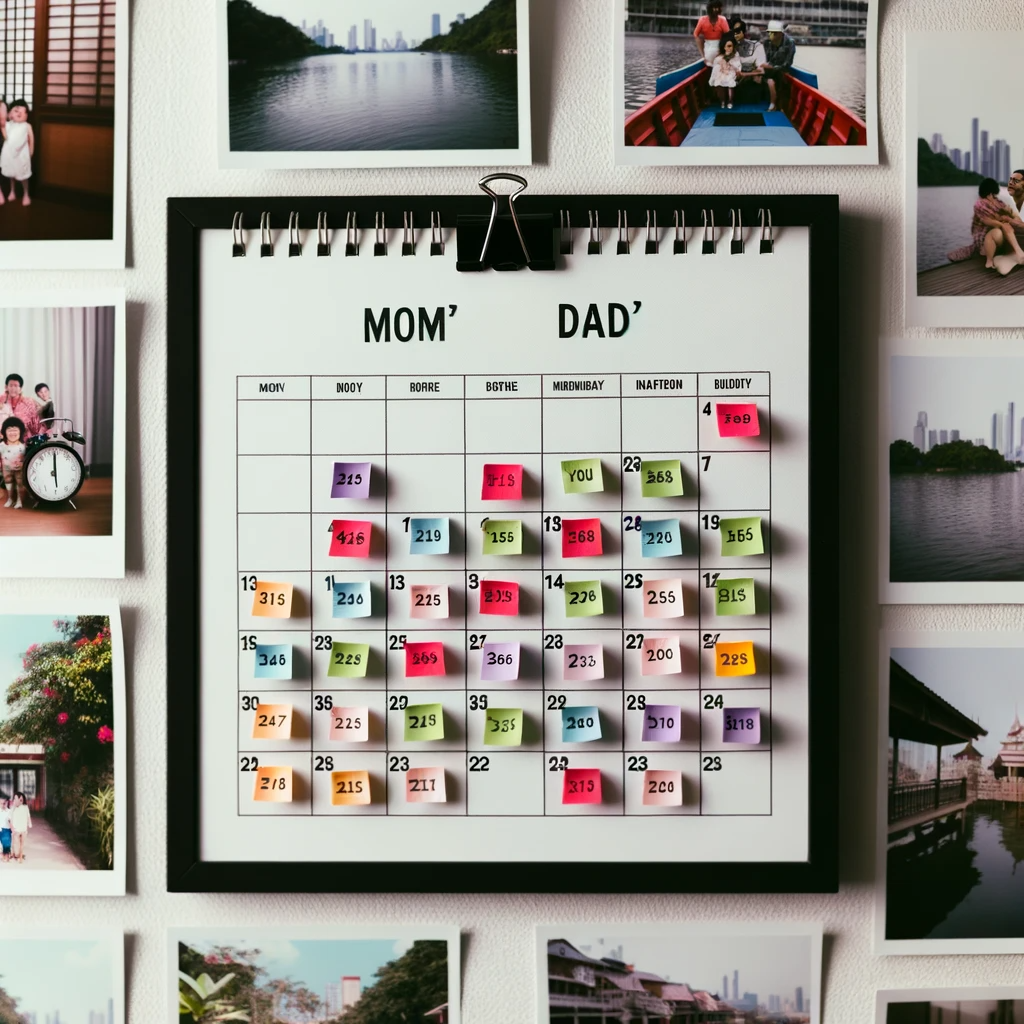Divorce can be a difficult and emotional time for all family members, especially children. Children may experience feelings of anger, confusion, and sadness during and after the divorce. As a parent, it’s important to support your child through this transition and help them cope with the changes in their family dynamic.
In this section, we will discuss effective ways to help your child after a divorce, including understanding the impact of divorce on children, communicating with your child about the divorce, establishing a routine and structure, co-parenting and collaboration, seeking professional support, encouraging emotional expression and validation, promoting self-care and well-being, addressing changes in living arrangements, and nurturing a positive co-parenting environment.

- Understanding the Impact of Divorce on Children
- Communicating with Your Child about the Divorce
- Establishing a Routine and Structure
- Co-Parenting and Collaboration
- Seeking Professional Support
- Encouraging Emotional Expression and Validation
- Promoting Self-Care and Well-being
- Addressing Changes in Living Arrangements:
- Nurturing a Positive Co-Parenting Environment
- Conclusion


Key Takeaways
- Divorce can be challenging for children, and they may experience a range of emotions.
- Effective communication with your child can help them navigate their feelings and feel supported.
- Consistency and structure can provide a sense of stability during this transitional period.
- Collaboration with your ex-partner and seeking professional support can also be beneficial.
- Validating your child’s emotions and encouraging self-care can aid in their healing process.
Understanding the Impact of Divorce on Children


Divorce can have a significant impact on children, and it’s important for parents to understand these effects to provide appropriate support. Research shows that children of divorced parents are more likely to experience emotional and behavioral problems, as well as academic difficulties. The effects of divorce may manifest differently in each child, depending on their age, personality, and circumstances.
Emotional and Psychological Impact
Children may experience a range of emotions after their parents’ divorce, including sadness, anger, guilt, confusion, and anxiety. They may feel a sense of loss, as their family structure changes and they adjust to living in two different households. They may also feel torn between their parents and experience loyalty conflicts.
Divorce can also have a psychological impact on children, affecting their self-esteem, sense of security, and trust in relationships. They may struggle with feelings of abandonment and may have difficulty forming attachments in the future.
Age-Related Effects
The effects of divorce may differ depending on the child’s age. Younger children may have more difficulty understanding the situation and may blame themselves for the divorce. They may regress in their behavior, such as bedwetting or separation anxiety. School-aged children may experience more academic difficulties and may have a harder time adjusting to changes in routines and living arrangements. Adolescents may experience a greater sense of loss and may have more intense emotional reactions, such as anger and depression.
Long-Term Effects
The effects of divorce can be long-lasting and may carry into adulthood. Children of divorced parents may have a higher risk of divorce themselves and may struggle with forming stable relationships. They may also have a higher risk of mental health problems, such as anxiety and depression.
By understanding the impact of divorce on children, parents can better support their child’s emotional and psychological needs. The next section will focus on effective communication strategies for parents to help their children cope with divorce.
Communicating with Your Child about the Divorce
Divorce can be a challenging time for children, and it’s important to communicate with them openly and honestly. By sharing information and encouraging your child to express their feelings, you can help them cope with the changes that come with a divorce.
Be Honest and Clear
When explaining the divorce to your child, it’s crucial to be honest and clear. Avoid providing too much information or speaking negatively about your ex-partner, as this can be confusing or hurtful for your child. Instead, focus on providing clear and concise explanations that are appropriate for your child’s age and level of understanding.
It’s also essential to emphasize that the divorce is not their fault and that both parents still love and care for them.
Listen and Validate
Encourage your child to express their feelings and listen to them without judgment. Let them know that it’s okay to feel sad, angry, or confused and that their emotions are valid. Validate their feelings by acknowledging them and letting them know that you understand.
Remember to remain calm and patient during these conversations, as your child may need time to process their emotions and thoughts.
Provide Reassurance
Divorce can be a major life change for children, and it’s natural for them to feel anxious or uncertain about the future. Providing reassurance and stability can help alleviate some of these concerns.
Let your child know that you will continue to be there for them and that things will eventually get better. Establishing a consistent routine and reassuring them that they will still have a safe and comfortable home can help provide a sense of security.
Seek Professional Help if Necessary
If your child is struggling to cope with the divorce, it may be helpful to seek professional help. Therapy or counseling can provide them with a safe and supportive space to process their emotions and develop coping strategies.
Remember that seeking help is a sign of strength, and can be beneficial for both you and your child.
Summary: Communicating with your child about the divorce can be challenging, but it’s important to be honest, listen, provide reassurance, and seek professional help if necessary. By supporting your child through this difficult time, you can help them build resilience and cope with the changes that come with a divorce.
Establishing a Routine and Structure
One of the most important things you can do for your child after a divorce is to establish a stable routine and structure. This can help them feel more secure and alleviate some of the anxiety that comes with the unknown.
It’s understandable that things may be different after a divorce, but making an effort to keep a consistent schedule can be incredibly beneficial for your child’s well-being. This includes sleep schedules, meal times, and extracurricular activities.
Additionally, try to establish a routine for transitions between households if your child will be spending time with both parents. This can help them feel prepared and ease any anxiety they may have about moving between two different environments.
Creating a Schedule


To establish a routine, consider creating a schedule that outlines daily activities and tasks. This could include wake-up times, breakfast, school, homework, dinner, and bedtime.
Make sure to involve your child in the process and allow them to have some input into the schedule. This can help them feel more invested and empowered in the process.
Be flexible as well, as unexpected things can come up. However, try to stick to the schedule as much as possible so that your child knows what to expect each day.
Keeping Communication Open
As you establish your routine and structure, it’s important to keep open lines of communication with your child. Check-in with them regularly to see how they’re feeling and if any adjustments need to be made.
Encourage them to express themselves and share any concerns they may have about the new routine. This can help you address any issues early on and prevent them from escalating.
By establishing a stable routine and structure and keeping open lines of communication, you can help your child feel more secure and supported during this difficult time.
Co-Parenting and Collaboration
Co-parenting after a divorce can be challenging, but it’s essential for the well-being of your child. By working together with your ex-partner, you can create a nurturing environment that fosters your child’s growth and development.


Effective co-parenting requires good communication and collaboration. Here are some tips on how to establish a positive co-parenting relationship:
- Put your child first: Remember that your child’s well-being is the top priority. Put aside your differences and focus on what’s best for your child.
- Communicate clearly and respectfully: Open and honest communication can help prevent misunderstandings and conflict. Use a respectful tone and avoid blaming or criticizing your ex-partner.
- Set boundaries and expectations: Discuss your expectations for each other as co-parents, including schedules, routines, and decision-making. Set clear boundaries to avoid confusion and conflict.
- Be flexible: Life is unpredictable, and plans may change. Be willing to be flexible and accommodating when unexpected events arise.
- Respect each other’s parenting style: You and your ex-partner may have different approaches to parenting. Respect each other’s style and find ways to compromise when necessary.
- Minimize conflict: Conflict can be stressful for your child and may impact their emotional well-being. Find ways to resolve disagreements peacefully and without involving your child.
Remember that co-parenting is an ongoing process that requires patience, understanding, and collaboration. By working together with your ex-partner, you can create a stable and loving environment that supports your child’s growth and development.
Seeking Professional Support
Divorce can take a significant toll on your child’s emotional and psychological well-being. Seeking professional support can help them process their emotions and develop coping strategies to deal with the changes they are facing.
Therapy or counseling can provide a safe and supportive environment for your child to express their feelings and concerns. A qualified professional can also equip your child with the necessary tools to address any anxiety, depression, or other mental health issues.
It’s important to involve your child in the decision to seek professional support and ensure they feel comfortable with the provider. Informing them that it’s okay to talk to a therapist or counselor can help reduce any stigma associated with mental health.
Working with a professional can also benefit you as a parent, helping you navigate the challenges of co-parenting and identifying ways to support your child’s emotional recovery.
Remember:
Seeking professional support is not a sign of weakness, but rather a proactive step you can take to ensure your child’s holistic well-being during this challenging time.
Encouraging Emotional Expression and Validation


Divorce can have a significant impact on a child’s emotional well-being. As a parent, it’s crucial to create a safe space for your child to express their feelings and validate their emotions. Here are some ways to encourage emotional expression and validation:
- Listen actively: When your child wants to talk, give them your undivided attention. Listen to what they have to say without interrupting or judging them. You can also ask questions to show that you’re interested in what they’re saying.
- Validate their feelings: Let your child know that their emotions are valid and that it’s okay to feel sad, angry, or confused. By acknowledging their feelings, you can help them feel heard and understood.
- Encourage expression: Provide opportunities for your child to express themselves, whether it’s through art, music, or writing. This can help them process their emotions in a healthy way.
- Model healthy emotional expression: Children learn by example, so it’s important to model healthy emotional expression. This means expressing your own emotions in a healthy way, such as talking about your feelings instead of bottling them up.
By encouraging emotional expression and validation, you can help your child build resilience and cope with the challenges of divorce.
Promoting Self-Care and Well-being
Divorce can be an emotionally draining experience and it’s crucial for both you and your child to prioritize self-care and well-being during this difficult time. By taking care of yourselves, you can better support your child’s coping mechanisms and promote their resilience in the face of change.


Encouraging Physical Self-Care
Encourage your child to take care of their physical health by implementing healthy habits such as regular exercise, a balanced diet, and sufficient sleep. Physical activity can release endorphins that boost mood and energy levels, while a nutritious diet and proper sleep can enhance overall health and well-being.
Promoting Emotional Self-Care
Encourage your child to practice self-compassion and self-reflection. Encourage them to participate in activities that bring them joy and foster positive emotional balance. Whether it’s reading, listening to music, or spending time outdoors, encourage them to carve out time for themselves to engage in activities that promote emotional well-being.
Being a Positive Role Model
As a parent, it’s important to model healthy self-care habits for your child. Take care of yourself physically and emotionally, and openly discuss the importance of self-care with your child. Be open and honest about how you take care of yourself and engage in activities that promote your own physical and emotional well-being. This may include joining a support group or seeking professional help if necessary. By modeling these positive behaviors, your child can learn to prioritize their own self-care.
Staying Connected with Supportive Networks
Encourage your child to maintain positive relationships with friends, family, and other supportive individuals. These connections can serve as a valuable source of emotional support and provide a sense of community. Additionally, take advantage of resources such as school counselors, therapists, and divorce support groups to help your child cope with the emotional challenges of divorce.
Promoting self-care and well-being is essential during and after a divorce. By emphasizing healthy habits, modeling positive behaviors, and staying connected with your child’s supportive networks, you can help your child navigate this transition with resilience and strength.
Addressing Changes in Living Arrangements:
One of the most significant changes that children experience during and after a divorce is a shift in living arrangements. This can be especially challenging if your child has to move to a new home, change schools, or adjust to a different routine.
To mitigate the impact of these changes, it’s important to involve your child in the decision-making process to the extent possible. This can help them feel more in control and less overwhelmed. You can also:
- Provide clear and age-appropriate explanations for why the changes are happening
- Create a consistent routine and schedule that your child can rely on
- Ensure that your child has a comfortable and safe living environment
- Encourage your child to personalize their new living space to help them feel more at home
It’s also essential to maintain open and honest communication with your child throughout this process. Encourage them to express any concerns or fears they may have, and validate their feelings. Additionally, consider seeking professional support or therapy if you feel that your child is struggling to adjust to the changes.
Nurturing a Positive Co-Parenting Environment
Divorce can be challenging for parents, but it can be even more difficult for children. That’s why it’s essential to prioritize your child’s well-being and work towards nurturing a positive co-parenting environment. Here are some ways to help your child cope with divorce:


- Establish Healthy Communication: Effective communication can help minimize conflict and create a positive co-parenting relationship. It’s essential to keep communication respectful and focused on your child’s needs.
- Collaborate on Parenting: Co-parenting requires collaboration and compromise to ensure consistency and stability for your child. Work together on important decisions and be willing to listen to each other’s perspectives.
- Avoid Putting Your Child in the Middle: Avoid putting your child in the middle of disputes or using them as messengers between you and your ex-partner. It’s important to shield them from any conflict and protect them from feeling like they have to take sides.
- Be Flexible and Adaptable: Co-parenting requires flexibility and adaptability, especially when it comes to changes in schedules or unexpected circumstances. Remember to prioritize your child’s needs and try to work together to find solutions that benefit everyone.
- Model Respectful Behaviour: As parents, you are role models for your child. It’s important to model respectful and cooperative behavior, even when you disagree with your ex-partner. This can help your child learn healthy conflict-resolution strategies.
By nurturing a positive co-parenting relationship, you can create a supportive and nurturing environment for your child after a divorce. Remember, your child’s well-being should always come first, and it’s essential to work together to provide them with the love and support they need.
Conclusion
Going through a divorce is undoubtedly a challenging time for both parents and children, but by implementing these strategies, you can help your child cope with the aftermath. It’s important to understand the emotional and psychological impact of divorce on children and communicate effectively with your child about their feelings. Maintaining a stable routine, fostering healthy co-parenting relationships, and seeking professional support when necessary can also aid in your child’s healing process.
Encouraging emotional expression and validation, promoting self-care and well-being, and addressing changes in living arrangements can further support their adjustment. By nurturing a positive co-parenting environment and providing ongoing support, you can help your child build resilience and navigate the challenges they may face.
Remember:
Helping your child after a divorce is an ongoing process that requires patience and understanding. By prioritizing your child’s emotional well-being and collaborating with your ex-partner, you can create a nurturing environment that fosters their growth and happiness.



FAQ
How can I help my child cope with the challenges of divorce?
There are several ways you can support your child during this difficult time. It’s important to maintain open and honest communication, establish a stable routine, seek professional support if needed, and foster a positive co-parenting environment.
How does divorce impact children emotionally and psychologically?
Divorce can have a significant impact on children’s emotions and psychological well-being. They may experience feelings of sadness, confusion, anger, or anxiety. It’s crucial to validate their emotions and provide a safe space for them to express themselves.
How can I effectively communicate with my child about the divorce?
Effective communication is key when discussing the divorce with your child. Be honest, age-appropriate, and provide reassurance. Encourage them to ask questions and express their feelings. Active listening and empathy are vital during these conversations.
Why is establishing a routine and structure important for my child after divorce?
Maintaining a stable routine and structure can provide a sense of stability and reassurance for your child. It helps them feel secure amidst the changes brought about by the divorce. Consistency in daily activities can also promote a smooth transition.
How can co-parenting and collaboration benefit my child?
Co-parenting and collaborating with your ex-partner can create a nurturing environment for your child. It helps to minimize conflict and ensure that both parents are actively involved in their child’s life. Consistency and joint decision-making are important aspects of effective co-parenting.
When should I consider seeking professional support for my child?
It may be beneficial to seek professional support, such as therapy or counseling, if your child is struggling to cope with the divorce. A trained professional can help them process their emotions, develop coping strategies, and provide additional support during this challenging time.
How can I encourage my child’s emotional expression and validate their feelings?
Validating your child’s emotions and creating a safe space for them to express themselves is crucial. Encourage them to talk about their feelings and actively listen without judgment. Let them know that their emotions are valid and that you are there to support them.
Why is promoting self-care and well-being important for both me and my child?
Taking care of yourselves physically and emotionally is essential for both you and your child during this challenging time. By prioritizing self-care, you can positively impact your child’s resilience and well-being. It’s important to set a good example and practice self-care together.
How can I address changes in living arrangements and create a comfortable environment for my child?
It’s important to address changes in living arrangements with sensitivity and open communication. Involve your child in decision-making when appropriate and create a comfortable living environment for them. Keep their belongings and routines consistent, and ensure they feel safe and secure in their new surroundings.
How can I nurture a positive co-parenting environment with my ex-partner?
Nurturing a positive co-parenting environment requires effective communication and conflict resolution. Focus on the best interests of your child and prioritize their well-being. Keep lines of communication open, be respectful, and collaborate on important decisions regarding your child.





Leave a Reply